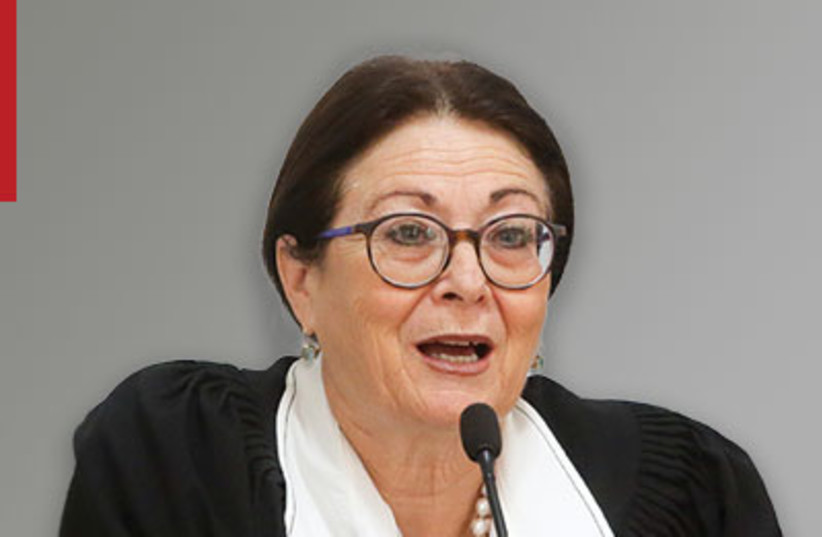Two NGOs and several LGBT couples filed a petition with the High Court of Justice on Sunday to compel the state to implement the court’s July 2021 ruling that was supposed to advance the surrogacy process after more than a decade of legal battles.
Yoav and Itai Arad-Pinkas said they would not allow the Health Ministry to continue to drag its feet on the issue more than a year after the ruling came out, which violated the High Court’s six-month deadline for reforms regarding lesbian, gay, bisexual and transsexual people who want to become surrogate parents.
According to the petitioners, despite the High Court’s clear ruling that within six months all the definitions in the law that exclude men from equal access to the surrogacy arrangement in Israel must be abolished, the Health Ministry’s legal division is throwing up obstacles that systematically thwart the changes from happening.
They wrote, “The egregious discrimination continues, and single men and gay couples are not entitled to participate on behalf of the state in the fertility treatments needed for the process, and there are no equal reimbursements within the health plan or supplementary insurance. Considering the state’s ongoing [violation of] the ruling, the petitioners decided to file an application,” to get the court to enforce its own decision from last year.
What did the decision in 2021 accomplish?

The 2021 ruling saw the court step out in front to reform the law on the issue, stating it could no longer wait for the Knesset to do so, having waited since 2010.
At the time, the court even fined the state NIS 30,000 to pay the plaintiffs for legal expenses since it had failed to address the issue in any coherent way.
That ruling came after the government asked the High Court to fix the surrogacy law itself shortly before it ruled, after failing again to fix the law by an earlier deadline. The court deemed the law unconstitutional nearly a year and a half before the 2021 ruling for excluding single men and same-sex couples.
This means that the state’s latest deadline violation continues with its earlier pattern even as the court had decided the issue.
“In these circumstances, it is not possible to come to terms with the continuing serious violation of human rights caused as a result of the existing surrogacy arrangement, and ‘once a constitutional right has been violated, constitutional relief derived therefrom must be recognized,’” High Court President Esther Hayut wrote in a prior ruling.
"It is not possible to come to terms with the continuing serious violation of human rights caused as a result of the existing surrogacy arrangement, and ‘once a constitutional right has been violated, constitutional relief derived therefrom must be recognized,’"
High Court president Esther Hayut
In response to the claims made by the state in the past about the inability of the Knesset to pass a constitutional version of the law, Hayut stressed, “‘The lack of political feasibility’ could not justify the continued serious violation of basic rights.”
The law was supposed to be fixed by deleting the current definition of “intended parents” and having the term interpreted as including same-sex couples and single fathers.
“This is a historic day for the LGBT community in Israel and a historic day for Israeli society as a whole,” said Meretz leader and Health Minister Nitzan Horowitz in a press conference after the 2021 decision.
“The right to equality and the right to parenthood received their rightful place in the critical issue of establishing a family. I am happy to announce as health minister that the Health Ministry will follow the High Court’s ruling to the letter,” Horowitz said.
“We are immediately beginning to prepare so that in the time frame set by the High Court, we will be able to approve, here in Israel in our Health Ministry, surrogacy arrangements in an equal manner to same-sex couples and single fathers,” he added.
Despite promises by Horowitz (who himself is gay), the NGOs say the ministry has stalled any real progress.
The Health Ministry and Horowitz both responded that they have already approved a small number of gay men for surrogacy in compliance with the High Court ruling.
However, the ministry said it is still exploring if it is possible to give state funding to gay men for this process.
The ministry said that for women, the existing law already authorizes such funding, whereas it implied that the same might not be true for gay men.
The NGOs in their petition made it clear that they viewed the High Court as having issued an order to remove all obstacles to equality for surrogacy for gay men, which would include funding.
Further, they argued that without such funding, surrogacy would be far more difficult, something that would be unequal.
Eliav Breuer and Tzvi Joffre contributed to this report.
